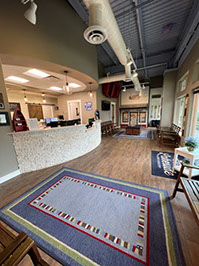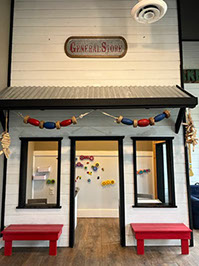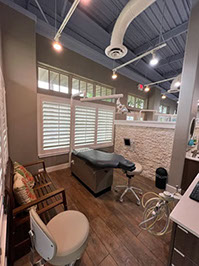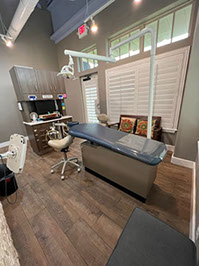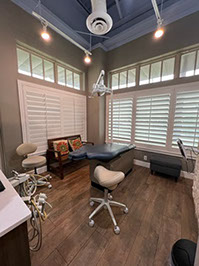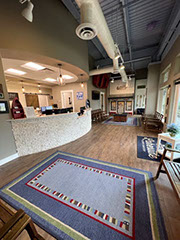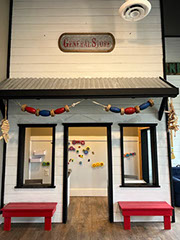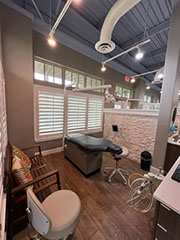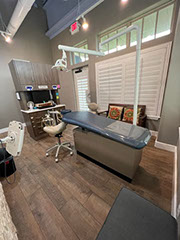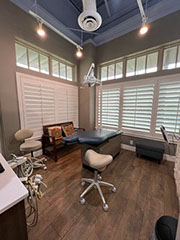Alison D. Campbell, DDS
Andrew M. Heaton, DDS
Bradley Wyatt, DMD, MSD
Board Certified Pediatric Dentists
Book Now!

Frequently Asked Questions
A pediatric dentist has an extra two years of specialized training after dental school and is dedicated to the oral health of children from infancy through the teenage years. The very young, pre-teens, and teenagers all need different approaches in dealing with behavior, guiding their growth and development, and helping them avoid future dental problems.
With the additional education, pediatric dentists have the training which allows them to offer the most up-to-date and thorough treatment for a wide variety of pediatric dental problems.
According to the American Academy of Pediatric Dentistry, your child should be seen by their 1st birthday or 6 months after the eruption of their first tooth.
Beginning dental care at an early age allows guidance for caring for your child's teeth and opportunities to address preventive issues that are important for healthy teeth and a pleasing smile. Early visits also help establish a positive relationship between our office and your child.
The American Dental Association (ADA) and the American Academy of Pediatric Dentistry (AAPD) recommend visiting a dentist twice a year for a checkup and a professional cleaning. Our office also recommends two visits per year.
It is very important to maintain the health of primary teeth (baby teeth). Neglected cavities can cause pain and infection, and can also lead to problems which affect the developing permanent teeth.
Primary teeth, which generally fall out between the ages of 5 and 12, are important for (1) proper chewing and eating, (2) providing space for permanent teeth and guiding them into position, and (3) permitting normal development of the jaw bones and muscles.
Radiographs (x-rays) are a necessary part of your child's dental diagnostic process. Without them, certain cavities will be missed. They also help survey developing teeth, evaluate results of an injury, or plan for orthodontic treatment. If dental problems are found and treated early, dental care is more comfortable for your child, and more affordable for you.
On average, our office will request bitewing radiographs approximately once a year and panoramic radiographs every 3-5 years. In children with a high risk of tooth decay, we will recommend radiographs and examinations every six months.
With contemporary safeguards, the amount of radiation received in a dental x-ray examination is extremely small. The risk is negligible. In fact, the dental radiographs represent a far smaller risk than an undetected and untreated dental problem. Lead body aprons and shields will protect your child. Today's equipment restricts the beam to the area of interest.
A sealant is a composite material that is applied to the chewing surfaces of the back teeth, where a majority of cavities in children can form. This sealant acts as a barrier to food, plaque, and acid, thus protecting the decay-prone areas of the teeth. However, cavities between the teeth are not protected by sealants. As long as there is no decay in the tooth, sealants will be recommended for most permanent teeth.
If your child has a cavity, a filling is placed after the cavity is removed. The filling is tooth colored (white).
In a primary tooth, if a cavity is too large to restore with a filling, a crown may be recommended or the tooth may need to come out. If the cavity is too large and has involved the nerve of the tooth, then the nerve will be removed (pulpotomy) along with the decay, and a filling or a crown will be placed. For front teeth, white restorations are used.
Clean the area around the sore tooth thoroughly. Rinse the mouth with warm salt water or use dental floss to dislodge impacted food or debris. DO NOT place aspirin on the gum or on the aching tooth. If the face is swollen or the pain still persists, contact our office as soon as possible.
Rinse debris from injured area with warm water. Place cold compresses over the face in the area of injury. Locate and save any broken tooth fragments in milk.
Contact our office as soon as possible.
If the tooth is knocked out, try to replace it back into the socket and call us at 830-693-4770.


We love what we do.
Treating children with kindness and compassion
while promoting a lifetime of healthy dental habits is our mission.
From the time your child grows their first tooth until they are ready to move on to an adult dentist, our doctors and their team will help care for and protect your child’s smile. Because children are so different from adults, we take a unique approach to every patient. We treat our patients as if they were our own and we want each visit to be a fun, educational visit.

We make visits easy and on-time,
so you can get back to your day!

Our office was built with your child in mind.
We can’t wait to see you at your next visit!
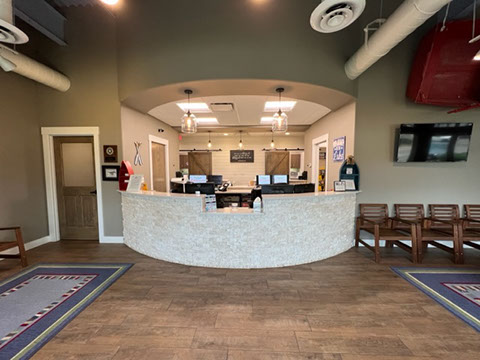
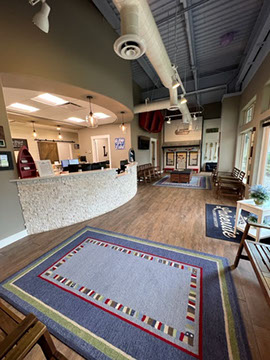
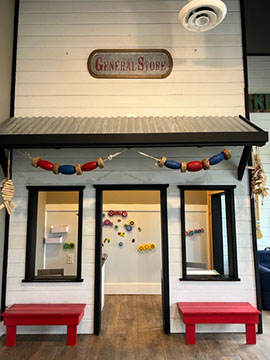
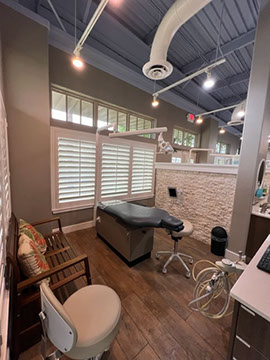
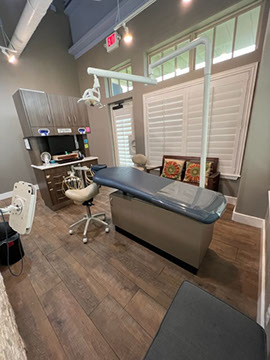
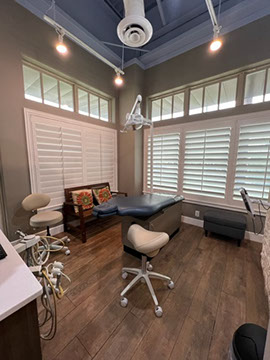
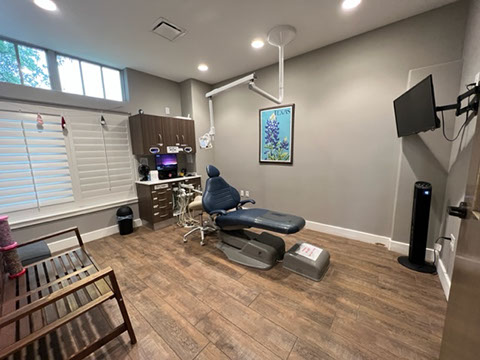
Learn more about Pediatric Dentistry

Preventive
Dentistry
This includes proper brushing, flossing and eating habits, ideal fluoride levels and the use of pit and fissure sealants. We strive to provide a fun, educational environment where children learn about the importance of good dental hygiene.
Restorative
Dentistry
This includes children’s sealants, fillings, and crowns including treatment of devastating early childhood caries. We are committed to discussing all options before these procedures and answering all questions you may have. Always working for the goal of a healthy smile is our first priority.
Sedation
Dentistry
Sedation dentistry refers to the use of sedation during dental treatment. Sedation is most commonly used during extensive procedures, for patients with dental phobia or for patients who find it difficult to sit still. Our office offers nitrous oxide, oral conscious sedation and general anesthesia.
Emergency
Treatment
We understand that the need for urgent dental care is sometimes necessary.
We strive to handle dental emergencies promptly and with compassion. We are always on call and you can reach our practice any day, at any time.
Seeing your child’s smile is the best part of our day.
Our friendly team is available to answer any questions about your next visit.
Ways to reach our office...



Call us
